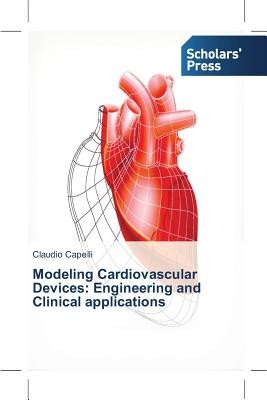
- We will send in 10–14 business days.
- Author: Claudio Capelli
- Publisher: Scholars' Press
- Year: 2013
- Pages: 260
- ISBN-10: 3639515803
- ISBN-13: 9783639515800
- Format: 15.2 x 22.9 x 1.5 cm, softcover
- Language: English
- SAVE -10% with code: EXTRA
Reviews
Description
Computer analyses including finite element models can now take into account anatomical variability as patient-specific characteristics. Hence, such modelling technique can be applied to realistically predict the outcome of selected procedures. In particular, in the field of cardiovascular interventions, models can potentially support the development of minimally invasive techniques to repair cardiac dysfunction. This research reports challenges and results of using simulations to support rising clinical applications, such as transcatheter valve repair, highlighting the benefit of a multidisciplinary approach towards patient-specific treatments.
EXTRA 10 % discount with code: EXTRA
The promotion ends in 19d.22:58:41
The discount code is valid when purchasing from 10 €. Discounts do not stack.
- Author: Claudio Capelli
- Publisher: Scholars' Press
- Year: 2013
- Pages: 260
- ISBN-10: 3639515803
- ISBN-13: 9783639515800
- Format: 15.2 x 22.9 x 1.5 cm, softcover
- Language: English English
Computer analyses including finite element models can now take into account anatomical variability as patient-specific characteristics. Hence, such modelling technique can be applied to realistically predict the outcome of selected procedures. In particular, in the field of cardiovascular interventions, models can potentially support the development of minimally invasive techniques to repair cardiac dysfunction. This research reports challenges and results of using simulations to support rising clinical applications, such as transcatheter valve repair, highlighting the benefit of a multidisciplinary approach towards patient-specific treatments.


Reviews